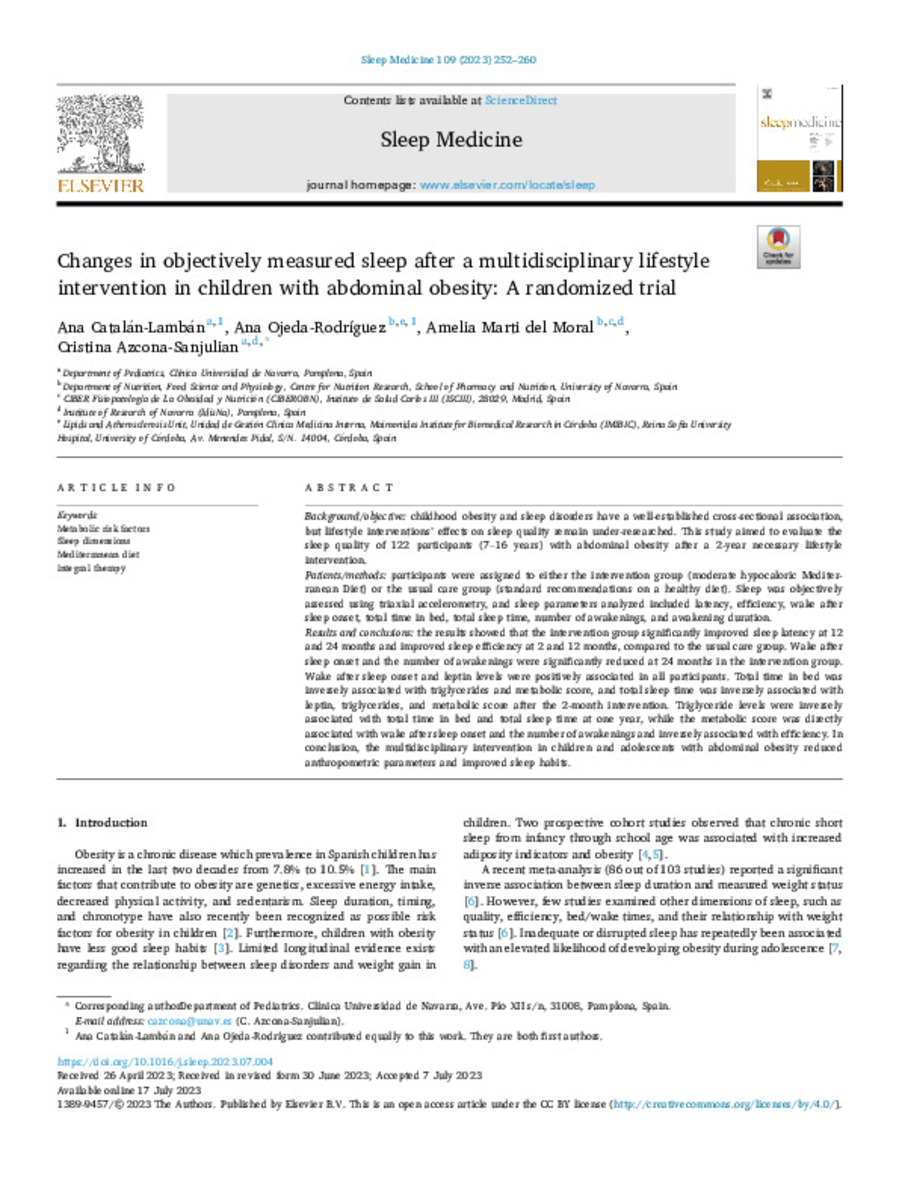Changes in objectively measured sleep after a multidisciplinary lifestyle intervention in children with abdominal obesity: A randomized trial
Keywords:
Metabolic risk factors
Sleep dimensions
Mediterranean diet
Integral therapy
Note:
This is an open access article under the CC BY license
Citation:
Catalán-Lambán, A. (Ana); Ojeda-Rodríguez, A. (Ana); Marti, A. (Amelia); et al. "Changes in objectively measured sleep after a multidisciplinary lifestyle intervention in children with abdominal obesity: A randomized trial". Sleep Medicine. 109, 2023, 252 - 260
Statistics and impact
0 citas en

0 citas en

Items in Dadun are protected by copyright, with all rights reserved, unless otherwise indicated.








